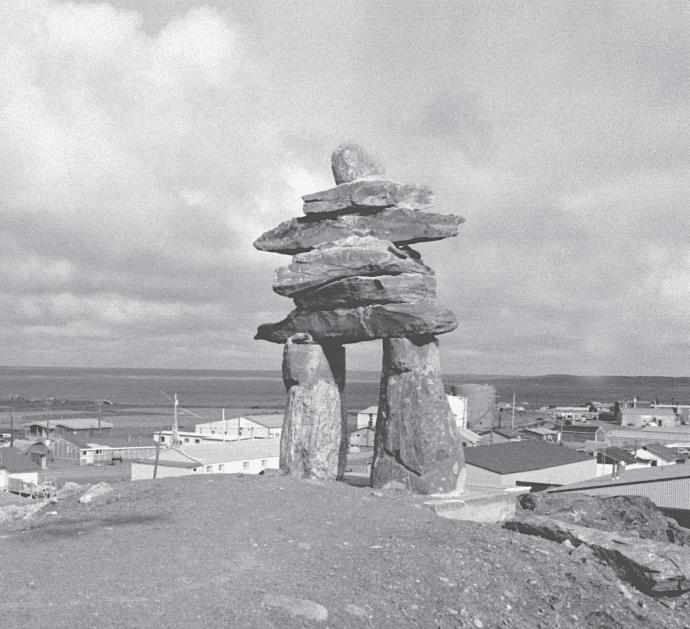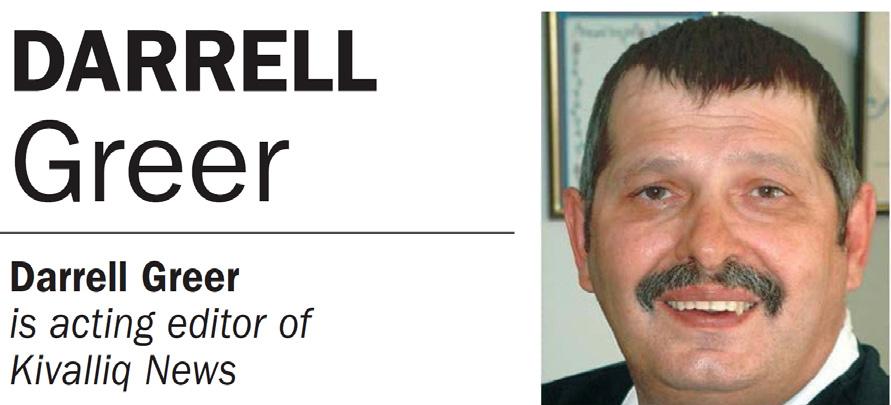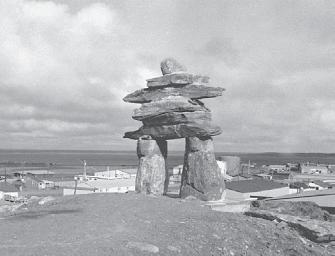
























for more than 30 years.
“He served his community with great dedication during this time and always worked in the best interest of the residents of Rankin Inlet,” wrote Harry Towtongie, mayor of Rankin Inlet in a letter from the municipality.
“Deepest sympathies to his wife Dorothy, daughters, Laura, Jocelyn and Kathleen as well as his son James,” Towtongie added. “He will be deeply missed.”
The hamlet of Rankin Inlet has lost another community leader and council member to cancer with the passing of Coun. Justin Merritt, 64, this past month.

Merritt had fought a long and courageous battle before succumbing to the deadly disease on Dec. 27.
Rankin lost its previous mayor, Robert Janes, on May 15, 2019, after a long illness with cancer.
Merritt was the hamlet’s senior administrative officer at the time of Janes’s passing.
In a written statement, current Mayor Harry Towtongie noted that Merritt had been actively involved with the municipality in various capacities for more than 30 years.
“He (Merritt) served his community with great dedication during this time and always worked in the best interest of the residents of Rankin Inlet,” wrote Towtongie.
“He will be deeply missed.”
Known as an honest, dedicated, family loving, hard working, no nonsense type of guy, Justin was always heavily involved with the robust hockey scene in Rankin and beyond in one form or another.
I was fortunate enough to have interacted with Justin professionally numerous times during my more than two decades as editor of Kivalliq News, and the man was always a true professional no matter what subject was being discussed, but it was during our time together as hockey officials where I got to know him best.

And it is from where my fondest memories of the man will always reside next to my heart.
Away from the public eye, to say Justin (I never felt comfortable calling him by his nickname, Dusty, for some reason) was a bit of a character is more than a bit of an understatement.
The man had a zany, off-the-wall sense of humour that often had those in the dressing room (or hotel room during a road trip) cracking up with laughter.
I’ve been around the game of hockey as a player, coach and official since the age of five, and Justin was the fastest person I’ve ever seen going from street clothes to hockey gear and vice-versa.
DARRELL GreerI swear the man had hidden Velcro straps that allowed him to step out of his street clothes with one deft flick of the wrist and return to them in record-breaking fashion.
He was so fast that the sweat would literally fall from his gear onto the dressing room floor as he walked away.
For those who may not know, Justin Merritt was one heck of a cook. The sweetest deal a fellow official could make while working a road tournament with Justin was to volunteer to clean up the eating area and
wash the dishes if he agreed to cook.
That man could do more with bacon and eggs – down home style – than the most clever of cooks in the fanciest of hotels, in my humble opinion.
There were mornings I woke to the heavenly sizzle of Justin’s magic in the kitchen, and literally floated down the hotel hallway, eyes closed and goofy smile on my face, until I arrived at the table, fork in hand and drool on chin, ready to dig in.
One never begrudged washing a dish in exchange for one of Justin’s tummy-filling creations.
Justin always spoke his mind and was often hilarious without even knowing it.
One year, he, Donald Clark and I travelled to Arviat to officiate the annual Calm Air Cup (Jon Lindell Memorial) senior tourney.
I had scheduled Justin and I to work the final game of the round robin late Saturday night. The game pitted Arviat’s youthful Young Guns squad — winless in about five years at the event — against Arviat’s ‘B’ team.
Justin was convinced walking to the arena that the game was going to be a mercy rule (one team down by seven or more goals at the end of the second period or any time
during the third) and I had spared Donald the experience because we had officiated together longer.
In fact, he couldn’t see any reason to play the game at all and gave it to me pretty good every step of the way to the rink.
Well, the Young Guns’ goalie stood on his head and the team earned its first win in the tourney in overtime, I believe. The crowd was going wild in support of the young team and it turned out to be one heck of a hockey game.
All the way back to the hotel, Justin thanked me for giving him the game and told me of the funny feeling he had in his stomach that this could end up being the upset of the tourney.
Besides, it looked good on Donald to miss such a great game just for a few extra hours of sleep. I never stopped chuckling the rest of the tournament and will never forget our walk together that night.
He was the first guy awake in the morning to cook an extra special breakfast but, as I recall, burning Donald’s bacon that morning was the only time I ever saw him make a mistake in the kitchen.
I could write pages of Justin memories if space permitted but, suffice to say, he was one heck of a guy who was liked and respected everywhere I travelled with the man.
I am proud to say he was my friend.
Keep your whistle dry up there, Stripes!
Polar bears in Canada’s Western Hudson Bay — on the southern edge of the Arctic — are continuing to die in high numbers, a new government survey of the land carnivore has
found. Females and bear cubs are having an especially hard time.
Researchers surveyed Western Hudson Bay — home to Churchill, the town called `the Polar
Bear Capital of the World,’ — by air in 2021 and estimated there were 618 bears, compared to the 842 in 2016, when they were last surveyed.
“The actual decline is a lot larger than I would have expected,” said Andrew Derocher, a biology professor at the University of Alberta who has studied Hudson Bay polar bears for nearly four decades. Derocher was not involved in the study.
Since the 1980s, the number of bears in the region has fallen by nearly 50 per cent, the authors found. The ice essential to their survival is disappearing.
Polar bears rely on arctic sea ice — frozen ocean water — that shrinks in the summer with warmer temperatures and forms again in the long winter. They use it to hunt, perching near holes in the thick ice to spot seals, their favorite food, coming up for air. But as the Arctic has warmed twice as fast as the rest of the world because of climate change, sea ice is cracking earlier in the year and taking longer to freeze in the fall.
That has left many polar bears that live across the Arctic with less ice on which to live, hunt and reproduce.
Polar bears are not only critical predators in the Arctic. For years, before climate change began affecting people around the globe, they were also the best-known face of climate change.
Researchers said the concentration of deaths in young bears and females in Western Hudson Bay is alarming.
“Those are the types of bears we’ve always predicted would be affected by changes in the environment,” said Stephen Atkinson, the lead author who has studied polar bears for more than 30 years.
Young bears need energy to grow and cannot survive long periods without enough food and female bears struggle because they expend so much energy nursing and rearing offspring.
“It certainly raises issues about the ongoing viability,” Derocher said. “That is the reproductive engine of the population.”
The capacity for polar bears in the Western Hudson Bay to reproduce will diminish, Atkinson said, “because you simply have fewer young bears that survive and become adults.”
 —By Suman Naishadham, The Associated Press
—By Suman Naishadham, The Associated Press
‘He served his community with great dedication,’ Mayor Harry Towtongie says of 30-year municipal veteranJustin Merritt, a councillor with the Hamlet of Rankin Inlet, passed away after a long battle with cancer on Dec. 27. Most recently elected to council in October 2019, he had been actively involved with the municipality in various capacities Rankin Inlet Coun. Justin Merritt passed away on Dec. 27 after a long battle with cancer, the Hamlet of Rankin Inlet announced the following morning. NNSL file photo











